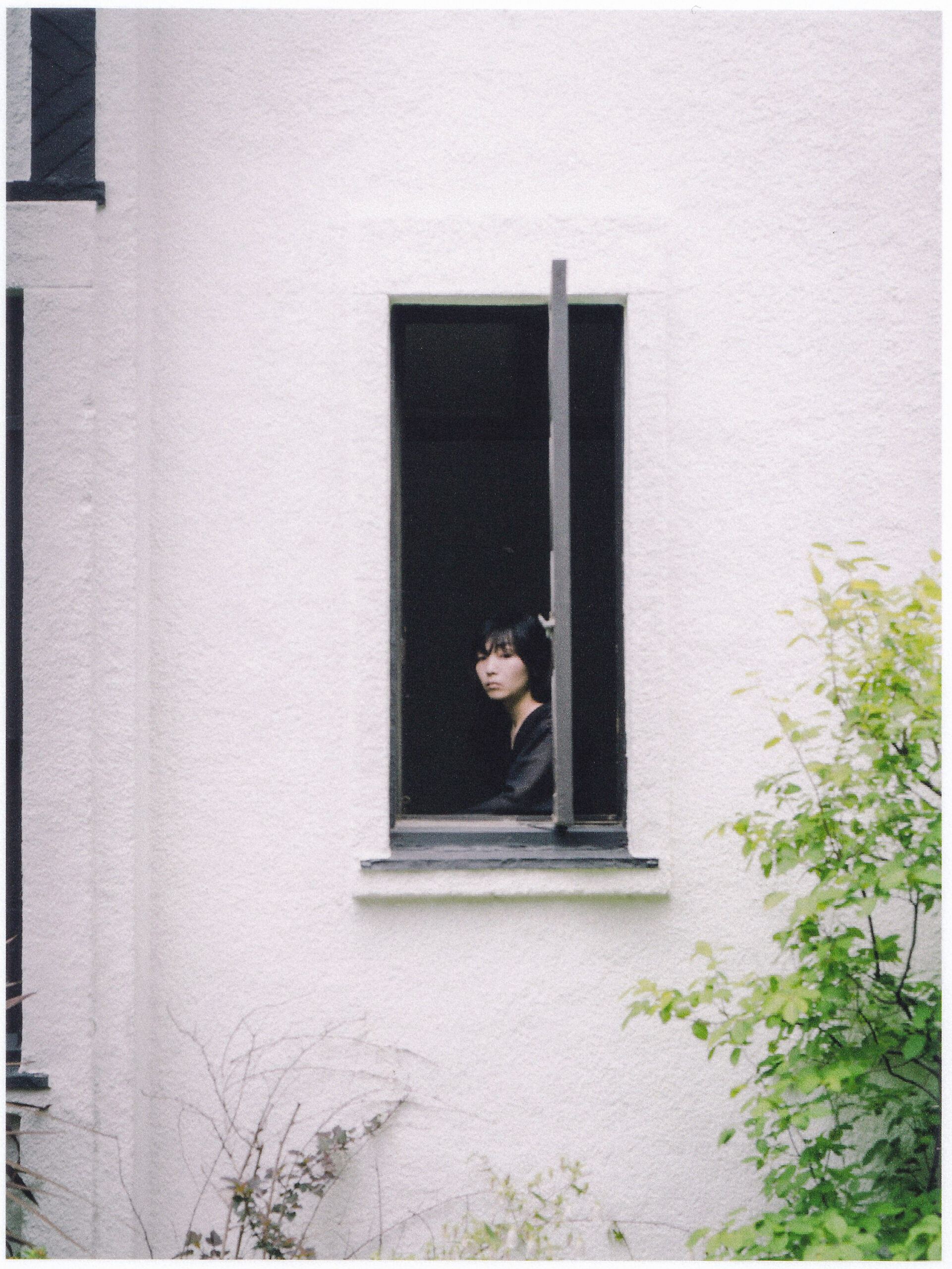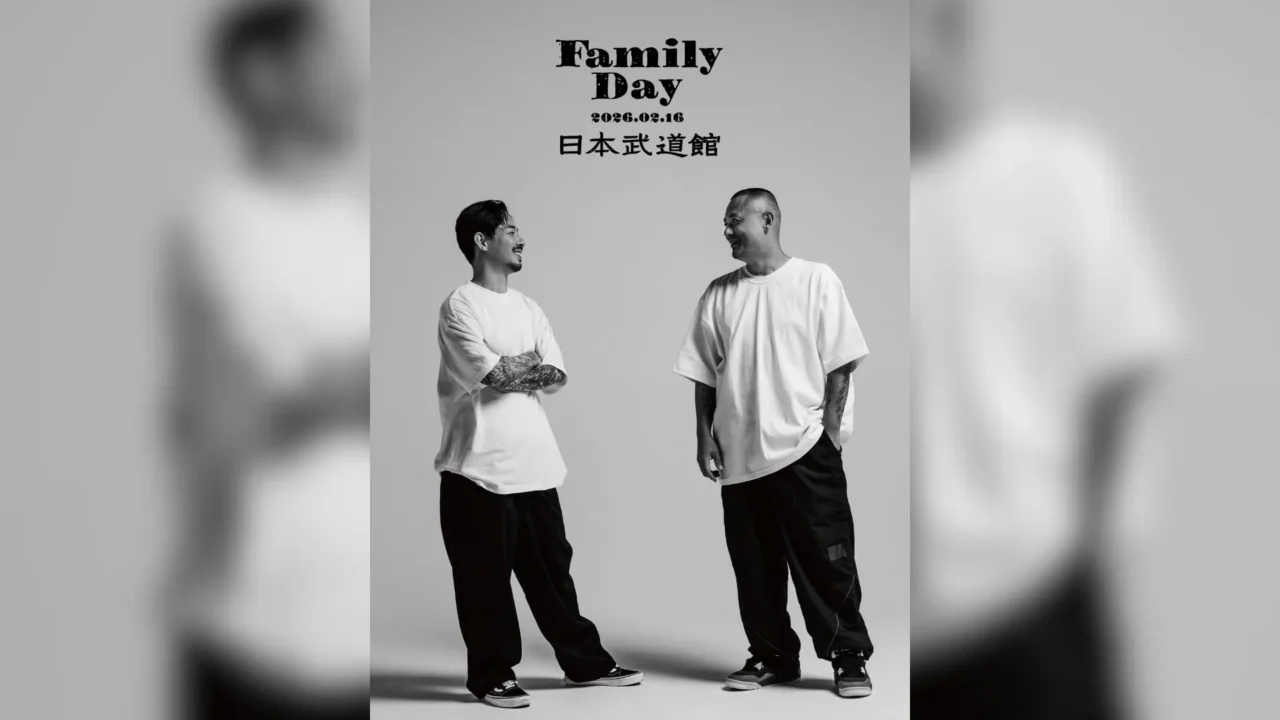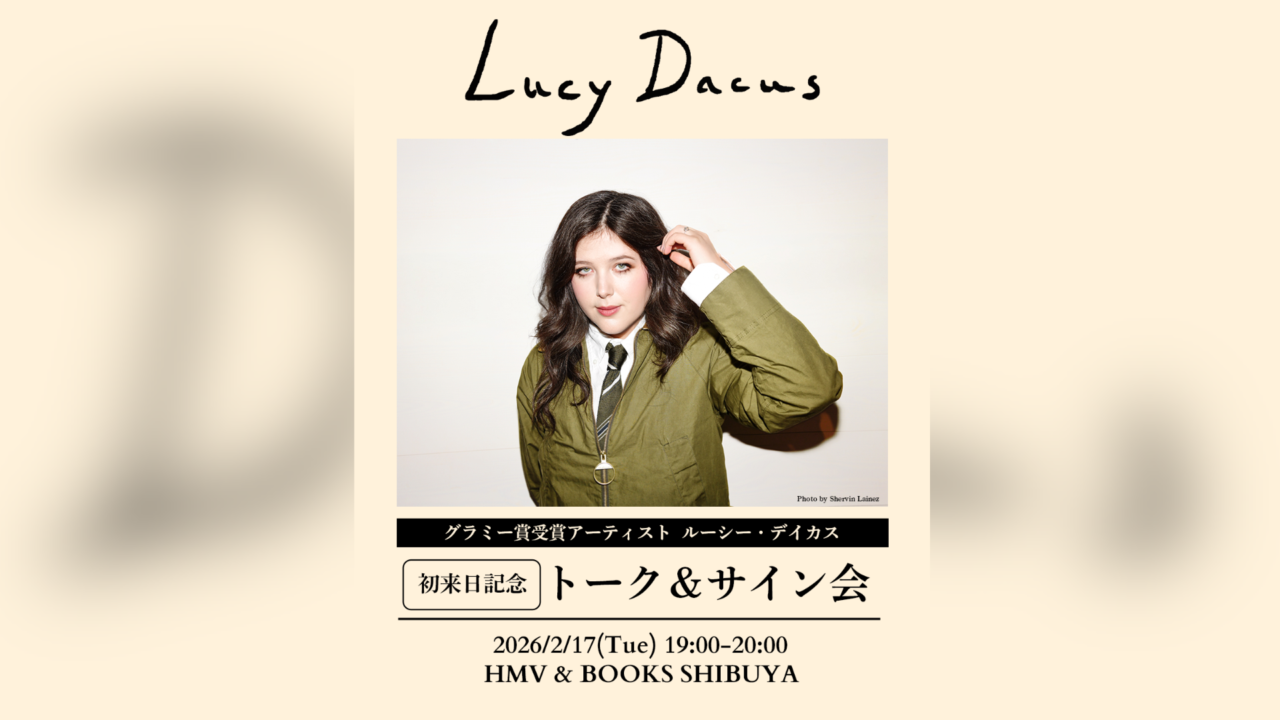Five years after her previous album, Ampelsands (2020), mei ehara returns with her third release, All About McGuffin, which she describes as “the final work of the first chapter.” The album carries a sense of duality: what she holds close now, what she has lost or let go in the past — everything matters, yet everything is replaceable. It is a record of her journey, marked by pain and uncertainty, and at the same time, a story for all of us living in the same era.
Over the past five years, mei ehara has confronted her inner world deeply, learning to distinguish between what she can let go of and what she cannot. Now, she says, she is “living entirely for herself.” Speaking with her during her first headline tour in the United States, she shared the mindset behind All About McGuffin—a work that is at once a singular narrative, a fantasy, an RPG-like adventure, and a raw, intimate chronicle—and reflected on her ever-evolving “now.”
INDEX
A Sense of Realization, Not Transformation
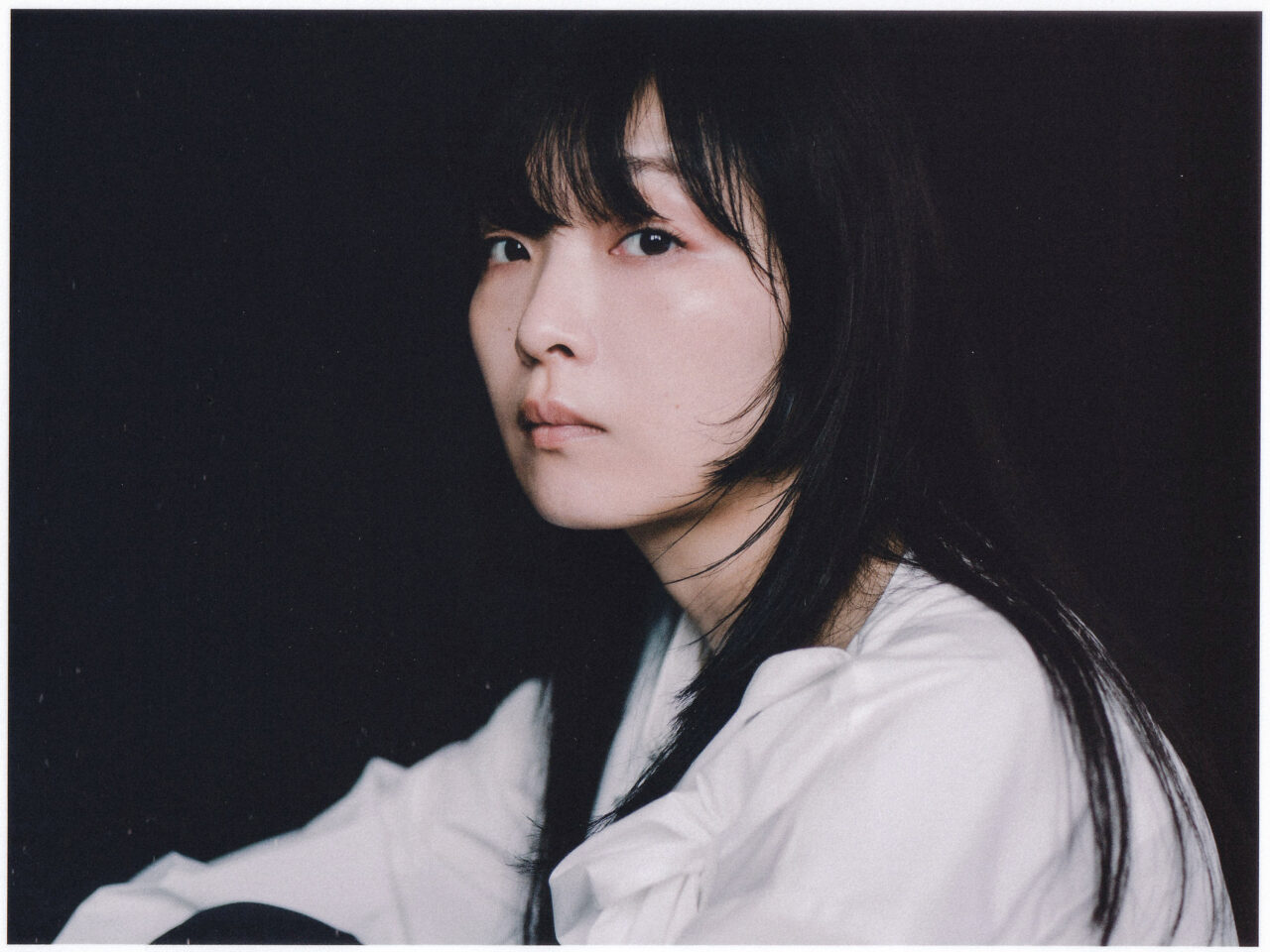
Singer-songwriter / Writer. She began recording music at home during her student years and debuted in 2017 with her first album, Sway, produced by Gohei Tsujimura of Kicell, released on Kakubarhythm. In 2020, she released her self-produced second album, Ampersands. She contributed to American singer-songwriter Faye Webster’s 2021 album, I Know I’m Funny Haha, and joined Webster’s U.S. tours in 2024 and 2025 as a supporting act. In September 2025, mei ehara released her first full-length album in five years, All About McGuffin, followed by a tour across four U.S. cities. She will hold a solo live performance at WWW X on October 19 after returning to Japan.
(Photo: Naoki Usuda)
So right now, you’re in the middle of your headline tour across San Francisco, Los Angeles, New York, and Chicago (September 23–30), with most shows sold out?
ehara: Yes, that’s right. My previous two tours were as the opening act for singer-songwriter Faye Webster, and she had often mentioned that she liked my music. Because of that, it felt like the audiences were already welcoming me. So I approached it wanting to support Faye’s tour and make it the best experience possible for everyone.
ehara:But this time, it’s mostly people coming specifically to see me, so I was honestly a little anxious about how they would react. I still don’t fully understand what it is about my music, singing in Japanese, that resonates with them. That said, I just finished the shows in San Francisco and Los Angeles, and when I actually performed, it turned out that everyone was genuinely looking forward to seeing my live performance. They were listening closely and really watching, which was such a relief.
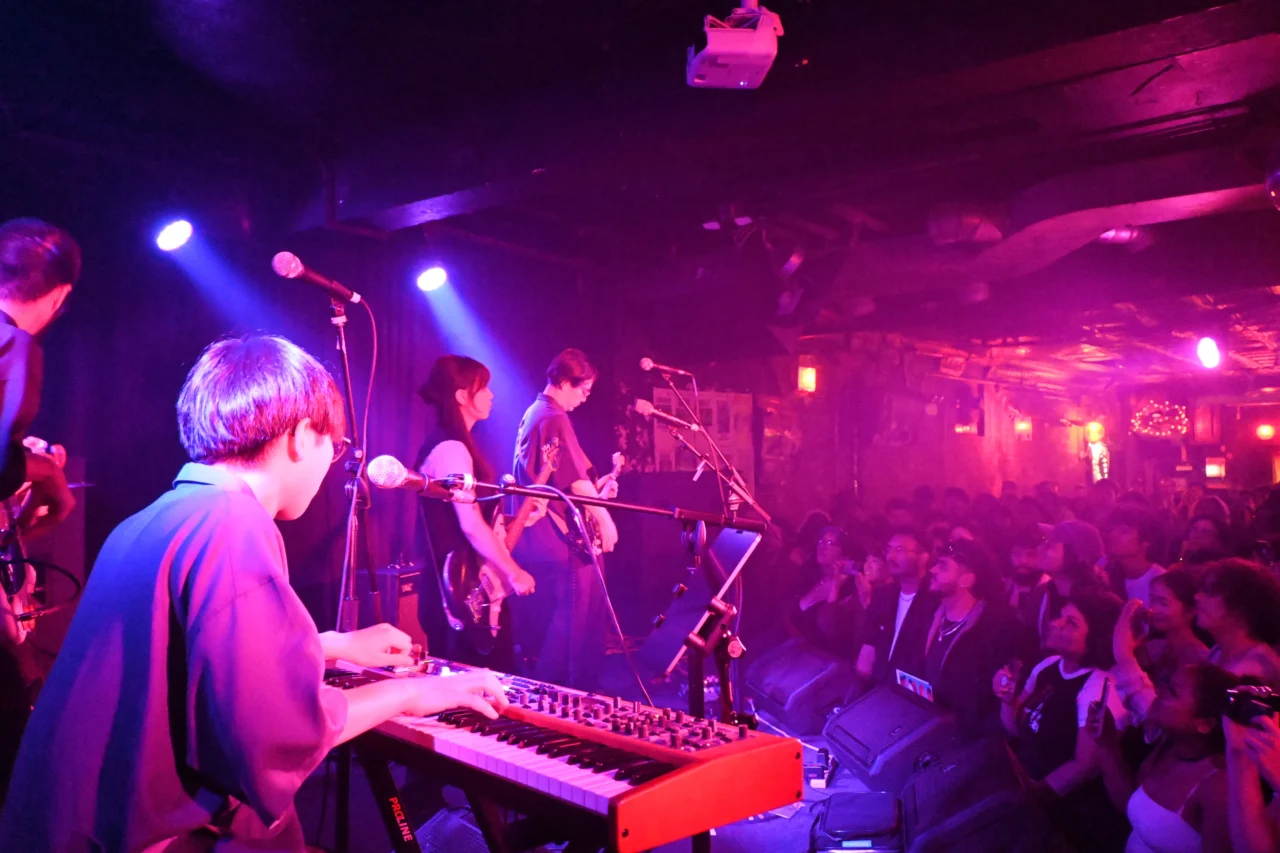
Has performing and creating music in the U.S. changed you in any way?
ehara: Honestly, I never imagined I’d have a life where I’d perform live overseas… So it’s not so much a sudden, eye-opening change as it is realizing things I simply didn’t know before. For example, the way people think about sound in America versus Japan, or how different a place and environment can make things—it made me realize my perspective had been pretty narrow.
If I had to say, I used to want to record songs with the same set of members for as long as possible. But now, I feel it might be good to try working with a wider variety of people. For example, bringing in a different producer for each track, performing songs that I wouldn’t write myself but are offered to me, or collaborating with other musicians—things like that are worth exploring.



